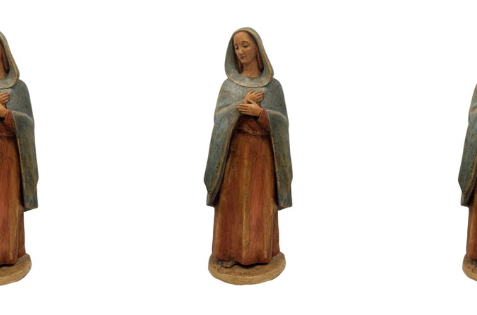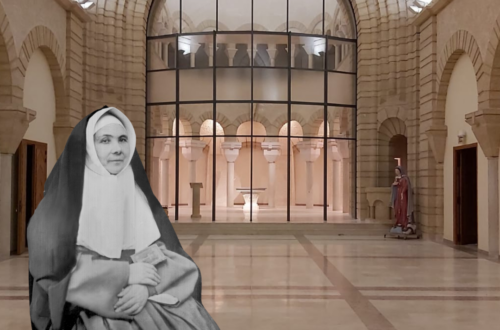Catherine Vincie, RSHM
“Live the life of the Spirit! The Holy Spirit is dwelling in you and asks for your cooperation.” GS/9/X/76
What Gailhac is reflecting is the amazing grace that God’s life in us is always given as “offer” which awaits our “response and cooperation.” This is true whether of individual gifts of the Spirit or the Holy Spirit itself. We can say that the Spirit is a particular revelation of God; the Spirit is the indwelling presence of God in us. The Holy Spirit of God is alive in us and enables us to act “God-like.” Gailhac calls us to “live the life of the Spirit,” and we are fortunate to have the apostle Paul giving us some ways of doing this in his letter to the Galatians 5: 22. For Paul not only are we gifted with the Holy Spirit, we are also recipients of the “gifts” of the Holy Spirit. To live in the Spirit is to reflect in our actual lives the gifts given by the Spirit; this is how we cooperate with the Spirit.
Paul suggests that the Holy Spirit is Love and to live a life of love is to want the good of the other and to do something about it, as well as to exercise appropriate self-love to which the Spirit also calls us.
The Spirit also gives the gifts of joy and peace which often go together. Living a joyful life reflects an inner connection at the depth of our souls with the depth of God that yields a peace beyond understanding.
Patience understood as long suffering helps us to achieve balance in our own needs and desires with the needs and desires of the other, especially when the other stretches our forbearance. Patience is also the gift we need to live the difficult moments of our lives, even times of intense suffering, with faith and resilience.
To live the Spirit’s gift of generosity is to walk that path that makes us most generous to all of creation. The Holy Spirit is Divine generosity and extends a share of that generosity to us.
Faithfulness or fidelity is the Spirit’s gift that enables us to live and love fully and “to the end.” When we are faithful, we are in the Holy Spirit.
Self-control finally is to live a life where everything in me is ordered according to love for my own well-being and that of others.
We through our baptism are members of the Body of Christ, the Church. Accordingly, we need at least to touch on the life and gifts of the Holy Spirit to the Church.
The Second Vatican Council insisted that the Holy Spirit sanctifies and leads the whole People of God not only through the sacraments and Church ministries, but also through special charisms bestowed by the Spirit freely on all the faithful in a variety of ways. These gifts are to be acknowledged and received with thanksgiving for the upbuilding of the Church (LG 12). Gailhac would surely agree that these Divine gifts are also to be received and developed by the RSHM for the life of the world.
The theologian Karl Rahner influenced the Council Fathers on the role of the Holy Spirit perhaps more than anyone else. We might end with a few insights from this great theologian:
“The Holy Spirit,” says Karl Rahner, is “the Spirit of life, of freedom, of confidence, of hope and joy, of unity, and thus of peace. We might therefore suppose that the human person longs for the Holy Spirit more than anything else.”
“The Church is a sacrament of the Spirit. The Church cannot be identified with the Spirit. It is not the Church that saves but the Spirit, at work in the Church and beyond it, who saves.”
Rahner warned that the Spirit who blows everywhere and in the most varied places “can never find adequate expression simply in the forms of what we call the Church’s official life, her principles, sacramental system and teaching.”
To live these gifts of the Holy Spirit at both the individual and Church levels is to partner with the Divine who desires fullness of life for us and who gives us the grace we need to make this a reality.
“Come, Holy Spirit, fill the hearts of the faithful
and enkindle in them the fire of your love.”








